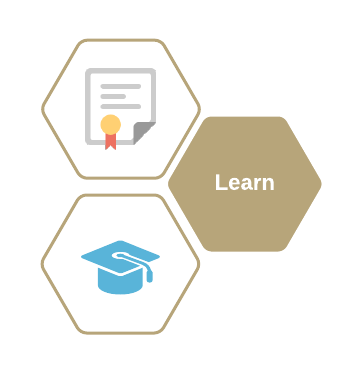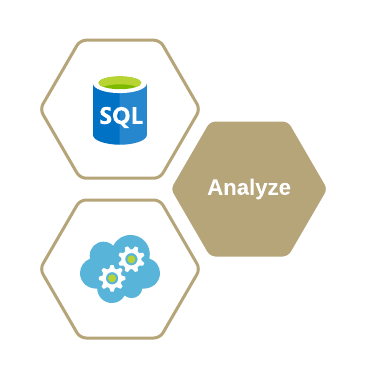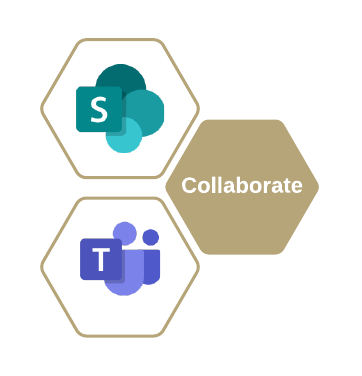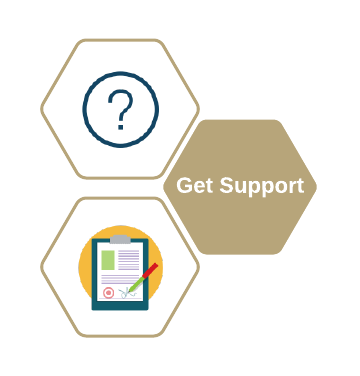Main Content
Problem-Focused Research
Our problem-focused research approach:
- Business: What problems and/or opportunities are present? When should an organization create/amend business processes, create new businesses, close existing ones and enter new markets? What are the necessary skills for achieving organizational impact and competitive advantages with strategic thinking, service transformation and evidence-based decision making (e.g. communication, project management, process optimization, business ethics, privacy, organizational culture change)?
- Data: What data and/or digital service could solve this problem? What core methods for acquiring, storing, handling and representing data can an organization use, and how can that data be converted to information, knowledge, and wisdom for desired outcomes, data modeling and databases?
- Analyze: What models and methods can I apply to solve this problem (e.g. descriptive, predictive, prescriptive, cognitive/machine learning, visualization/storytelling, core analytical, statistical and computational techniques, regression and related statistical methods, data and text mining, cognitive analytics, and operations research methods)?
- Revolutionize: How can a business apply these concepts? How can a business gain key insights through hands-on experience working with and implementing analytical projects in a business environment?
Sample research areas:
- Business intelligence
- Digital transformation
- Digital marketing
- Supply-chain management
- Performance management
- Predictive analytics
- Statistical and data analysis
- Analytical decision management
- Risk analytics
- Regulatory compliance
- Reporting and forecasting
- Financial reporting
- Disclosure management

Community of Practice
Community Innovation Programs (Community of Practice)
We strongly believe in and foster the value of community and open innovation, and are in the process of establishing a number of community of practices. These communities bring together people and organizations who share a concern, problem, or passion about a topic, and who deepen their knowledge and expertise in the field by interacting on an ongoing basis. We operate as “learning and action systems” where we connect to solve problems, share ideas, set standards, build tools, and develop relationships with peers and stakeholders. Currently, we have the following Community of Practices:
- Economic Impact Analysis (EIAP)
- Data Analytics for COVID-19

1. Economic Impact Analysis (EIAP)
The Center for Business Analytics (CBA) Economic Impact Analysis Program (EIAP) brings together students, faculty, researchers, and the business community to gather, analyze, and report on the organization, programs, and policies that impact the economic drivers of a region.
The mission of the EIAP at the CBA is to help companies by providing tools for decision making, establishing measures for strategic goal achievement, and lay out the cost-benefit and financial feasibility of service development and deployment.
Our goal is to communicate these findings in ways that are straightforward, targeted, and sustainable, providing companies, industries, or regions with analytics to drive prosperity.
Our Work
Spotlight on Joint Base Lewis-McChord: Our team has worked with South Sound Military and Community Partnership (SSMCP) to understand the impact of Joint Base Lewis-McChord on the Greater Tacoma region.
Connecting the Tacoma Tideflats to local economies: Our team has worked with the Manufacturing Industrial Council to explore the impact of the Tacoma Tideflats on its surrounding economies.
2. Data Analytics for COVID-19
We use data analytics to increase the effectiveness and efficiency of healthcare services and help economic recovery during COVID-19.

The Core Research Team

Sergio V Davalos, Associate Professor

Haluk Demirkan, PhD & PMP
Michael Turek, MSBA,MBA

Rupinder P. Jindal, Associate Professor

Xingyue (Luna) Zhang , Assistant Professor

Arthur Jago , Assistant Professor

Yan Bai, Professor
Virtual Analytics Innovation Lab

Virtual Analytics Innovation Lab
The Center for Business Analytics (CBA)’s core mission is inspiring innovation through the strategic use of data, analytics, design, and service thinking. The Virtual Analytics Innovation Lab serves this mission by providing a comprehensive technology ecosystem to students, staff, and faculty for addressing the problems of today and tomorrow through data analytics and innovation. This ecosystem includes a collection of software, processes, tools, and templates which enable students and researchers to analyze, design, and develop prototype or proof of concept digital solutions in the fields of data analytics, data science, big data, and cloud computing. Users have flexible access to tools and training for collaboration, communication, and documentation systems.
A technology ecosystem to support our unique applied learning model and real-world projects
In our programs, including the Master of Science in Business Analytics (MSBA), students go through learning and practice phases iteratively throughout their education journey. Practicing newly gained knowledge and skills through applied projects reinforces the learning experience while producing opportunities to gain soft skills such as teamwork, communication, and problem-solving. You can find some of the technology tools and platforms facilitating digital transformation of our unique experiential learning model below:
Resources
Cloud Services
Online Learning
- New! Data Camp
- Linked In Learning for UW students
- Machine Learning Crash Course
- Cognitive Class AI
Languages and Tools

Canvas: Our Canvas Learning Management System serves as the central hub for students and faculty. In Canvas, students can find links to all associated systems and resources, access many hands-on tutorials for different technology tools, and get information, updates and notifications regarding their program.
Workshops: Our workshops introduce students to contemporary technology tools and help them advance their technical skills.
Tutorials: With step-by-step instructions, hands-on tutorials help students explore new tools and create tangible learning outcomes they can include in their portfolio.
Digital Badges: Digital badges allow for web-enabled evidence of learning, participation, and completion of skills or achievements. Learn more.

Data Science Virtual Machines: Through the CBA Virtual Analytics Lab, each MSBA student has access to a pre-configured Data Science Virtual Machine. Data Science Virtual Machines contain popular tools that are commonly used for data analytics, machine learning and AI training.
SQL Databases: Students have access to SQL databases to store their data securely in the cloud.
Cloud Services: We do not require students to use a specific cloud service. Students benefit from Microsoft Azure, AWS, and Google Cloud licenses available for students to explore different cloud services and working environments.
Data Camp: UW Tacoma MSBA students can benefit from 6-month free membership to Data Camp, which is one of the most intuitive learning platforms for data science and analytics. DataCamp’s learn-by-doing methodology combines short expert videos and hands-on-the-keyboard exercises to help learners retain knowledge.

SharePoint and Microsoft Teams: Collaboration and Project/Task Management tools play an essential role in the success of Applied Projects. Students use these tools to enhance teamwork while following the Agile methodologies for their evolving project requirements and solutions. SharePoint is a web-based productivity, collaboration, and communication platform. Microsoft Teams is part of UW Office 365 and provides remote collaboration, communication, and file storage platform, including persistent direct messaging and group chat functionality, as well as virtual video and voice calling.
Video Conferencing Systems: Zoom allows students to collaborate over the web with video, audio, and screen sharing.
CBA Power BI Report Server: CBA Power BI Report Server is a platform where students can share interactive Power BI Reports and more with their team. They can write comments on the shared reports and communicate with their team through the web portal of the Power BI Report Server.

Desk Pro Ticket System: This system allows support staff to share the management of service requests, reported incidents, and support knowledge.
Technology Office Hours: Students can ask their technology and data analytics-related questions to our technology team during technology office hours.
DocuSign Contract Management: DocuSign facilitate remote contract and agreement management.
* Please note that, since our technology platforms are constantly evolving, the availability of the technology resources is subject to change.
